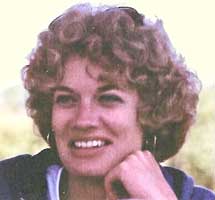Santosha Oliver completed her Ph.D. in biomedical science at the University of Connecticut while earning a Connecticut teaching certificate through the Alternate Route to Certification program. She began teaching science at East Hartford High School in 2006. In this statement, posted July 1, 2008, she tells how her experience in research during her Ph.D. program has helped her in the classroom. Subsequently, after teaching for several years, she was named coordinator of assessment, evaluation and research for the East Hartford Public Schools, and then was appointed as assistant principal of the school system’s O’Brien STEM Academy.
Prior to becoming an educator, I worked in research. I participated in research projects in fields including endocrinology and internal medicine, immunology and serology, and developmental biology and genetics. My research training has helped me to become a successful science teacher because I am able to bring my knowledge and passion of biotechnology to the classroom.
In my short tenure as a science teacher, I have worked with students to isolate DNA and analyze it, using gel electrophoresis and Polymerase Chain Reaction (PCR). I have also used a hands-on approach to teach the central dogma of biology and genetic engineering by helping students genetically transform bacteria to glow under an ultraviolet light.
The East Hartford school system has afforded me the opportunity to present students with a different perspective about science and technology with the goal of encouraging more minority and female students to pursue careers in science. For me, the special moments in teaching are the ones where students actually make those connections between science and their own lives. Even more rewarding is watching students envision themselves in science-based careers. For example, I have taught many students who absolutely hated science and now tolerate it. In some cases, they are considering careers in medicine, forensic science, and engineering.
I believe my classroom is a unique experience for most of my students because they are learning about science from a teacher that looks like them, has a Ph.D., and perhaps has overcome some of the very obstacles that they face. In addition, most of my students are exposed to biotechnology activities that usually are reserved for students located in wealthy districts or enrolled in advanced classes.
I believe successful science teachers teach not only content, but also experimental design, problem-solving strategies, critical thinking skills, and laboratory technique, while showing students the link between science, technology, and society. I believe my research background gives me this advantage and allows me to use a holistic approach to teaching science.
